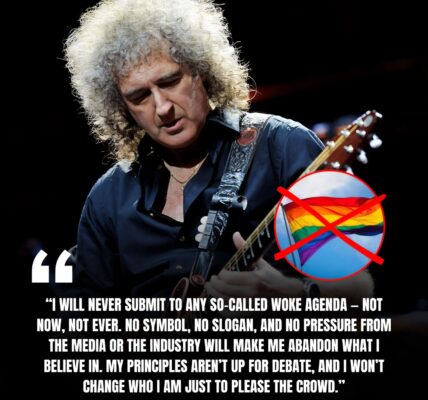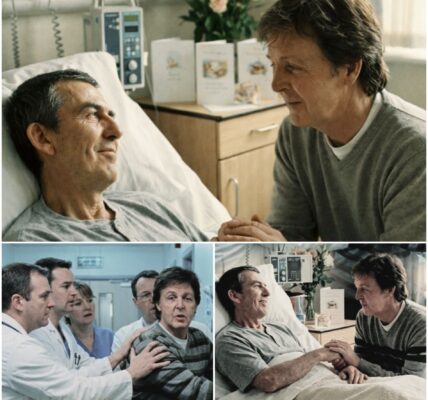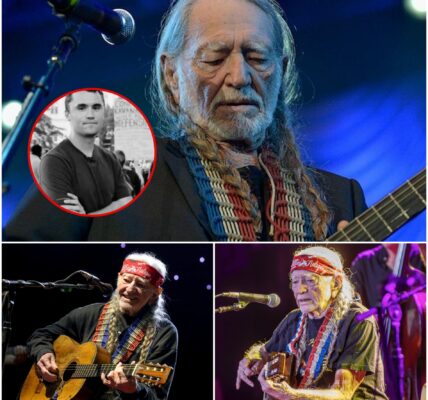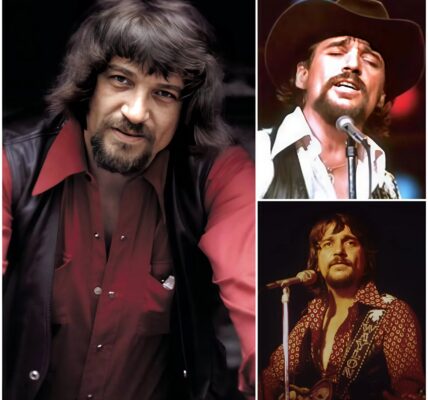JANUARY 6, 2000 — THE NIGHT NASHVILLE WATCHED A LEGEND PUSH THROUGH THE PAIN
There are concerts people enjoy, concerts people remember —
and then there are nights that become myth.
January 6, 2000, at the Ryman Auditorium was one of those nights.
It wasn’t advertised as historic.
It wasn’t meant to be emotional.
But by the time Waylon Jennings sang his final note, everyone in the room knew they had witnessed something that would be talked about for decades.

A Different Kind of Quiet
Before Waylon even touched his guitar, something felt different.
The crowd didn’t buzz the way they normally did before a country giant took the stage. Instead, the room settled into a hush — the kind that falls when people sense they’re about to witness something fragile and important.
When Waylon walked out, the change was visible.
No swagger.
No quick stride.
Just a slow, careful walk toward a simple wooden chair waiting in the center of the stage.
He lowered himself slowly, steadying his body before giving a small, tired smile to the audience and joking:
“I hurt my back and my legs… but I’m gettin’ around.”
The room laughed — but softly.
The kind of laugh that comes with love, and worry, and understanding.
“Never Say Die” — A Voice That Refused to Break


He opened with “Never Say Die.”
His hands trembled when he lifted the guitar.
His body struggled.
But the moment he sang the first line, the pain disappeared into the background.
That unmistakable voice — warm, rough, lived-in — filled the Ryman like it always had. For a few precious minutes, Waylon Jennings sounded untouchable again. Not young, not flawless, but unbreakable.
People didn’t just hear the song.
They felt the fight behind it.
A Setlist That Carried a Lifetime

As the night moved on, Waylon delivered the songs Nashville had grown up with:
-
“Good Hearted Woman”
-
“Mammas Don’t Let Your Babies Grow Up to Be Cowboys”
-
“I’ve Always Been Crazy”
It wasn’t the loudest performance of his career.
But in a way, it was the bravest.
Every note cost him something.
Every breath seemed earned.
Every lyric carried the weight of a man who refused to quit — not now, not tonight.
Between songs he cracked another joke, eyes flickering with the old spark:
“Y’all don’t worry about me… I can still kick ass.”
And for a second, everyone believed him entirely.
A Venue That Turned Into a Living Room
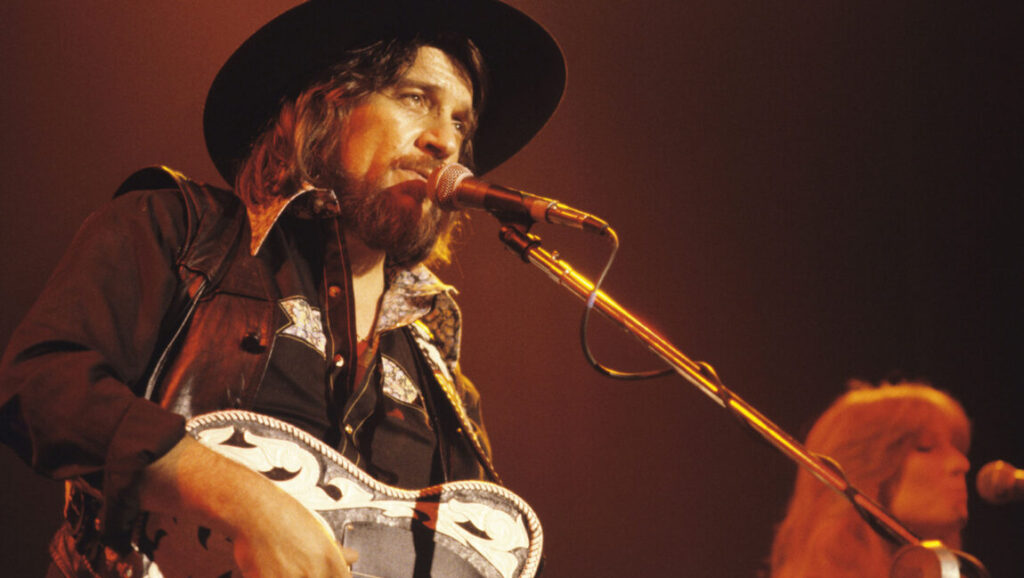

The Ryman didn’t feel like a historic auditorium that night.
It felt intimate — like family crowded together in a living room, watching someone they loved push through a storm just to share one more moment.
No one said it out loud, but everyone felt it:
This wasn’t just another show.
This was Waylon giving everything he had left.
Not because he owed them a performance.
But because he loved them enough to finish the song.
The Final Note and the Standing Ovation That Said Everything
When the last notes faded, Waylon leaned back in his chair, chest rising and falling, catching his breath. There was no dramatic curtain drop. No grand gesture.
Just a man who had given the very last of himself to his music.
Then Nashville rose.
Not with screams or wild cheers —
but with a long, steady, deeply respectful standing ovation.
They weren’t applauding the performance.
They were honoring the courage.
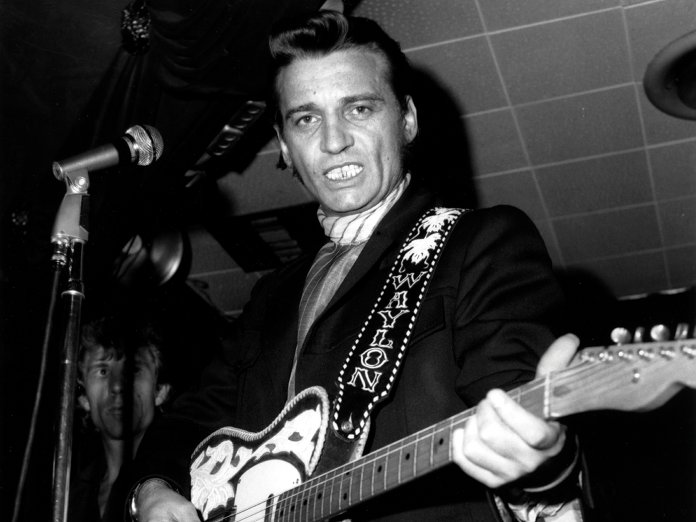
A Night That Felt Like a Farewell — Even If He Never Said It
Waylon Jennings never officially called it his last major performance.
But people who were there still say the same thing:
It felt like watching a legend fight for one more song —
and win.
Because on that January night, Waylon didn’t show Nashville how strong he was.
He showed them how much he loved them.
And that made it unforgettable.

